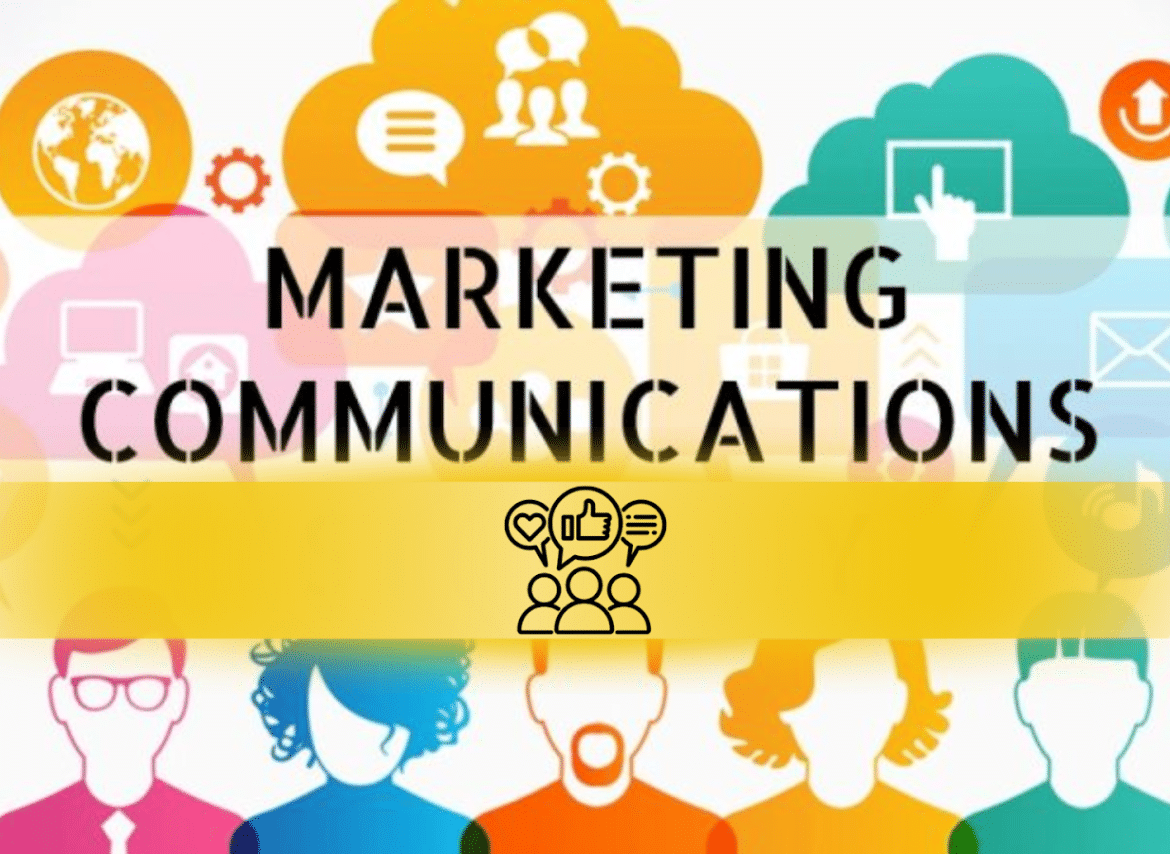Discover powerful tactics to elevate your marketing communications game. Uncover expert insights and actionable tips for boosting engagement, crafting compelling messages, and amplifying your brand’s reach.
In today’s digital age, mastering marketing communications is pivotal for businesses aiming to thrive in a competitive landscape. From defining what marketing communication entails to unveiling its strategic framework, this comprehensive blog post delves deep into the essence of marketing communications—exploring the intricacies of a marketing communications strategy, understanding the roles of a marketing communications manager, and unraveling the process behind effective communication campaigns.
This guide aims to equip you with the insights necessary to harness the power of targeted messaging and amplified visibility. Let’s journey through the multifaceted world of marketing communications, exploring its advantages and FAQs to uncover the keys to strategic success in the ever-evolving marketing landscape.
What is marketing communication?
Marketing communication is how companies talk to you. It’s like when a friend shares cool stuff with you to get your attention and interest. But instead of friends, it’s businesses telling you about their products or services.
This communication happens through different channels, like ads on TV, social media, emails, or even posters on the street. The goal? To grab your eyeballs and make you want what they offer.
It’s all about creating a connection between the company and you. They use words, images, and sometimes even music to make you feel something. They want you to remember them when you need something they sell.
Have you noticed catchy slogans or jingles that stick in your head? That’s part of marketing communication, aiming to make their brand memorable.
Sometimes, companies use famous people or influencers to talk about their stuff. They hope that if you like the person, you might like what they’re promoting, too.
The main thing to know is that marketing communication is everywhere! Whether it’s a fun video on TikTok or a billboard on your way to work, companies are always trying to get you interested in what they offer.
What is a marketing communications strategy?
Marketing communications strategy is how companies talk to you. It’s like their game plan for chatting with customers. Imagine it as their playbook for saying, “Hey, check out our awesome stuff!” It’s not just about selling things; it’s about how they connect with you.
This strategy covers how companies spread the word – like ads, social media, emails, or even when they sponsor cool events. It’s not just about what they say but also how they say it. The words they pick, the pictures they use – everything is planned to catch your eye and interest you.
Think of it as a recipe for making you think, “Wow, I need this!” It’s about creating a buzz around their product or service so you notice them in a crowded world. They want you to remember them when thinking, “Where do I get that thing I need?”
Companies craft these strategies based on who you are, what you like, and where you hang out. They want to be where you are and speak your language. That’s why you might see different ads on Facebook than on a billboard. It’s all about reaching where you are most likely to listen and respond.
So, when you see those catchy ads or receive those tempting emails, remember it’s all part of a plan to catch your attention and make you feel like you need what they’ve got.
What is the marketing communication process?
Alright, here’s the scoop on marketing communication. Ever noticed those ads popping up everywhere? Or those catchy slogans that stick in your head? That’s all about how companies chat about their goods or services with you.

So, step one: they want to grab your attention. Think of eye-catching visuals or a clever tagline that makes you pause and think, “What’s this all about?”
Next up, they aim to make things crystal clear for you. They’ll tell you what they’re offering, why it’s cool, and how it could improve your life.
Then comes the persuasion game. They’ll work hard to convince you that what they’ve got is the bee’s knees. Comparisons, problem-solving pitches, you name it—they want you to feel like you need their stuff ASAP.
Now, they’re not just talking. They want you to take action. That could mean hitting that ‘Buy Now’ button, signing up for newsletters, or spreading the word. They might sweeten the deal with discounts or time-limited offers to seal the deal.
Last but not least, they want to stay connected. After you’ve crossed paths, they might shoot you follow-up emails, ask for your thoughts, or keep you posted on what’s new in their world.
That’s the lowdown on marketing communication—hooking your attention, telling you why they’re awesome, persuading you to take action, and then keeping in touch.
What does a marketing communications manager do?
If you’re wondering what a marketing communications manager does, think of them as the conductor of the brand orchestra. Their main gig? Making sure the brand’s message hits the right notes with the audience. They craft strategies to spread the word about products or services using social media, ads, emails, and more tools.
Picture this: You see an ad that tells you, “Whoa, gotta check that out!” That’s their doing. They brainstorm catchy slogans, cool ads, and engaging content that grabs your attention. They work closely with the team to keep the brand voice consistent across all platforms. They’re behind the scenes, ensuring everything sounds and looks top-notch.
Research is their secret sauce. They dive deep into market trends, analyze what competitors are up to, and figure out what makes the audience tick. This helps them create strategies that stand out in the crowd. They’re the Sherlock Holmes of the marketing world, always sleuthing for clues about what will work best.
They’re not just about ideas; they’re numbers wizards, too. They do it all by tracking campaigns, analyzing data, and measuring success. This way, they know what’s working and needs a tweak.
In a nutshell, these marketing communications maestros ensure that when you hear about a brand, it’s not just noise but music to your ears.
What Is a marketing communications manager’s salary?
Marketing communications managers earn salaries based on experience, location, and the company they work for. On average, their salary is influenced by these aspects. Your pay might increase as you gain more experience in this role. The city or state you work in also affects your salary, as some places pay higher wages than others for the same job. The type and size of the company can also impact your earnings, with larger companies often offering higher salaries.
As a marketing communications manager, your salary can range widely. Entry-level positions might offer lower pay, while those with extensive experience may earn significantly more. Additionally, certain industries pay higher salaries for this role than others. Industries like technology and finance often offer better compensation packages.
Salaries for marketing communications managers can vary greatly from one region to another. Urban areas or cities might provide higher wages due to higher living costs. Researching and considering these factors is important when assessing potential earnings in this role.
Remember, negotiating your salary is common in many industries. Your skills, experience and the value you bring to the company are vital in determining your earning potential as a marketing communications manager.
What are marketing communications advantages?
Marketing communications offer numerous benefits for businesses looking to effectively promote their products or services. These advantages help you connect with your audience, spread brand awareness, and boost sales.

- Increased visibility
- Building trust
- Targeted messaging
- Cost-effective
- Relationship building
- Measurable results
- Adaptability
1. Increased visibility
Marketing communications help your brand stand out. Through various channels like social media, emails, or advertisements, you can reach a wider audience, increasing visibility and recognition.
2. Building trust
Consistent communication builds trust. When you engage regularly and honestly with your audience, it fosters credibility, making people more likely to choose your brand over competitors.
3. Targeted messaging
Tailoring messages to specific audiences ensures your content resonates with them. It allows you to address their needs and concerns, increasing the likelihood of a positive response.
4. Cost-effective
Compared to traditional advertising, marketing communications can be more cost-effective. Digital channels like social media or email marketing often require less investment for wider reach.
5. Relationship building
Engaging with customers through communication creates a sense of community and strengthens relationships. Responding to queries or feedback promptly shows your dedication to customer satisfaction.
6. Measurable results
Many communication tools offer analytics, allowing you to measure the effectiveness of your campaigns. This helps in refining strategies for better outcomes.
7. Adaptability
With various communication channels, you can adapt your approach based on trends and audience preferences to stay relevant.
Effective marketing communication offers a pathway to connect, engage, and build relationships with your audience, resulting in increased brand recognition and improved business outcomes.
FAQs
1. What is Marketing Communications (MarCom)?
Marketing Communications (MarCom) refers to the various strategies and tactics used by organizations to convey messages to their target audience, promoting their products, services, or brands. It involves advertising, public relations, direct marketing, digital marketing, and other communication tools to achieve marketing objectives.
2. Why is Integrated Marketing Communications (IMC) important?
Integrated Marketing Communications (IMC) is crucial as it ensures consistency in messaging across different channels, creating a unified and coherent brand image. It helps maximize the impact of marketing efforts by coordinating various communication tools to deliver a consistent message to the target audience.
3. What are the key components of a successful Marketing Communications strategy?
Key components of a successful MarCom strategy include identifying the target audience, establishing clear communication objectives, choosing the right communication channels, crafting compelling messages, maintaining consistency across all channels, and regularly evaluating and adjusting strategies based on performance.
4. How do you measure the effectiveness of Marketing Communications campaigns?
Effectiveness in MarCom campaigns can be measured through various metrics such as reach, engagement, conversion rates, click-through rates, return on investment (ROI), brand awareness, customer acquisition, and customer retention. Tools like analytics software, surveys, and market research help evaluate campaigns’ success.
5. What role does storytelling play in Marketing Communications?
Storytelling is a powerful tool in MarCom that helps connect emotionally with the audience, making the brand or product more relatable. It helps in creating a narrative that resonates with consumers, making the message memorable and influencing their perception of the brand.
6. How do you create an effective Marketing Communications plan?
To create an effective MarCom plan, start by defining clear objectives, identifying the target audience, selecting appropriate communication channels, crafting compelling messages, setting a budget, establishing a timeline, implementing the plan, and regularly monitoring and analyzing its performance for adjustments.
7. What are some emerging trends in Marketing Communications?
Some emerging trends in MarCom include influencer marketing, personalized marketing through AI and machine learning, video content marketing, interactive content, voice search optimization, and the growing emphasis on sustainability and corporate social responsibility in messaging.
8. How does Marketing Communications differ in a B2B (Business-to-Business) context compared to B2C (Business-to-Consumer)?
Marketing Communications in a B2B context often focuses on building relationships, emphasizing product/service features and benefits, and targeting a more specific and knowledgeable audience. B2C MarCom tends to focus on emotional connections, brand loyalty, and reaching a broader consumer base with more straightforward messaging. Both utilize different channels and strategies tailored to their respective audiences and purchase processes.
Conclusion
In the fast-paced marketing world, effective communication is the cornerstone of success. Through this journey into mastering marketing communications, we’ve unearthed pivotal strategies vital for triumph. From crafting compelling narratives to leveraging diverse channels, communication was both an art and a science. Embracing authenticity, fostering engagement, and adapting to dynamic consumer landscapes emerged as essential paradigms.
Remembering the power of storytelling, the impact of visuals, and the resonance of personalized messaging delineates the path toward reaching and captivating audiences. Aligning strategies with evolving technological advancements and societal shifts becomes imperative for staying relevant. Ultimately, mastering marketing communications is a continuous evolution—a harmonious blend of innovation, empathy, and adaptability, ensuring brands resonate authentically, leaving an indelible mark on their audience.







